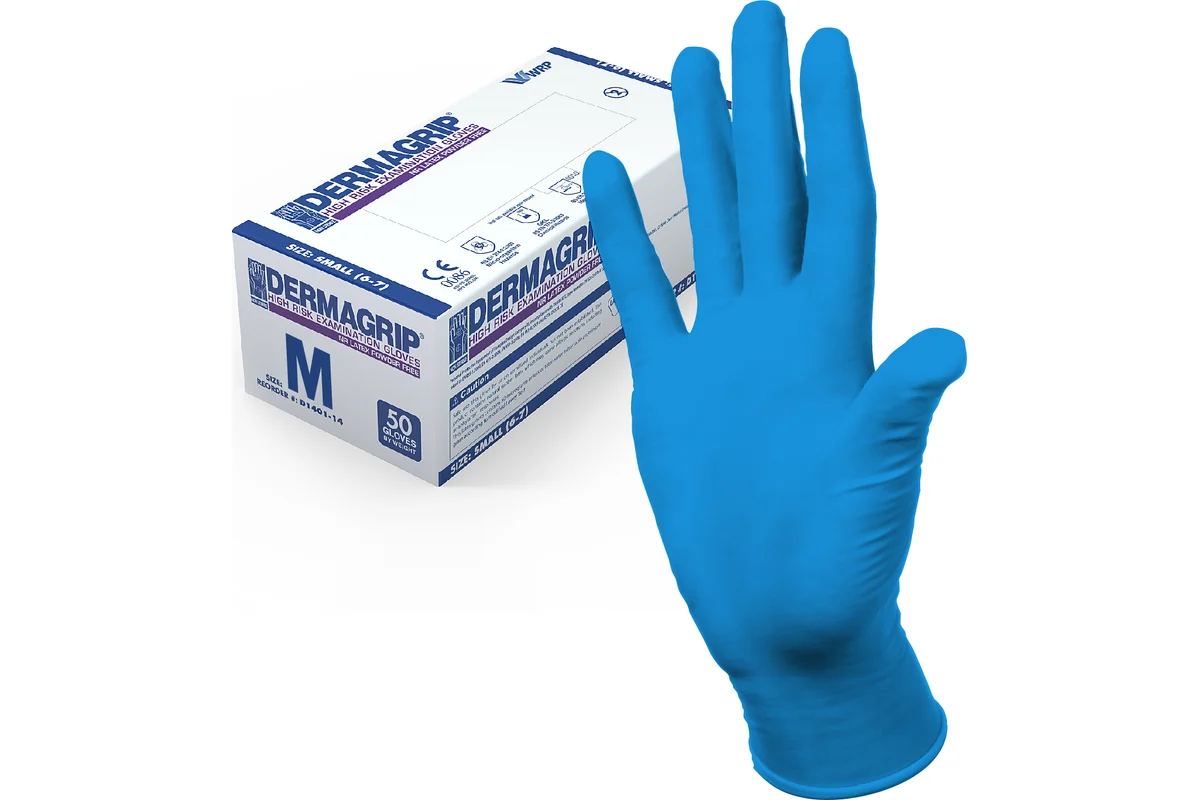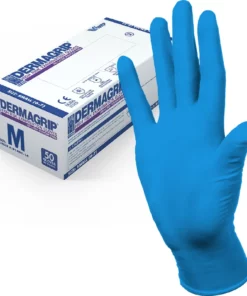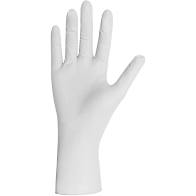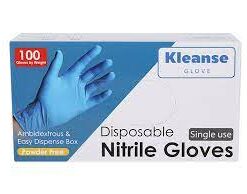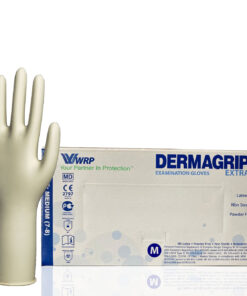dermagrip gloves
R512.13 Ex VAT
Specific Uses in High-Risk Situations
- Healthcare
- Nitrile and Latex Gloves: Used for medical examinations, surgeries, handling infectious materials, and working in environments with a high risk of contamination.
- Laboratories
- Nitrile and Neoprene Gloves: Essential for handling chemicals, conducting experiments, and protecting against biological hazards.
- Food Industry
- Vinyl Gloves: Used for handling and preparing food to maintain hygiene and prevent contamination.
- Chemical Industry
- Butyl and Neoprene Gloves: Protect against chemical burns, exposure to solvents, acids, and alkalis.
- Automotive Industry
- Nitrile Gloves: Used for handling oils, greases, and chemicals, and protecting against cuts and abrasions.
- Construction and Manufacturing
- Cut-Resistant and Puncture-Resistant Gloves: Provide protection when handling sharp tools, materials, and glass, and prevent injuries from punctures.
- Electrical Work
- Electrical Insulating Gloves: Protect against electrical shocks and are used when working with live electrical equipment.
These gloves are designed to provide high levels of protection against specific risks associated with different industries and tasks.
Evergreen latex gloves
Category: Disposable Gloves
Tag: dermagrip gloves
Types of High-Risk Gloves
- Nitrile Gloves
- Uses:
- Medical examinations and procedures
- Laboratory work
- Handling chemicals and hazardous materials
- Food processing
- Automotive industry
- Uses:
- Latex Gloves
- Uses:
- Medical and dental procedures
- Laboratory work
- Handling biological hazards
- Tattoo and piercing studios
- Food service
- Uses:
- Vinyl Gloves
- Uses:
- Food handling and preparation
- Cleaning and janitorial work
- Non-hazardous material handling
- Painting and arts and crafts
- Uses:
- Butyl Gloves
- Uses:
- Handling chemicals and hazardous materials
- Working with acids and alkalis
- Handling solvents and gas
- Uses:
- Neoprene Gloves
- Uses:
- Chemical handling
- Laboratory work
- Handling oils and greases
- Working with biological hazards
- Uses:
- Puncture-Resistant Gloves
- Uses:
- Handling sharp objects
- Medical procedures involving needles
- Waste management
- Glass handling and manufacturing
- Uses:
- Cut-Resistant Gloves
- Uses:
- Handling sharp objects
- Food processing
- Glass handling and manufacturing
- Metalworking
- Uses:
- Electrical Insulating Gloves
- Uses:
- Electrical work
- Working with live electrical equipment
- Utility and power line maintenance
- Uses:
Specific Uses in High-Risk Situations
- Healthcare
- Nitrile and Latex Gloves: Used for medical examinations, surgeries, handling infectious materials, and working in environments with a high risk of contamination.
- Laboratories
- Nitrile and Neoprene Gloves: Essential for handling chemicals, conducting experiments, and protecting against biological hazards.
- Food Industry
- Vinyl Gloves: Used for handling and preparing food to maintain hygiene and prevent contamination.
- Chemical Industry
- Butyl and Neoprene Gloves: Protect against chemical burns, exposure to solvents, acids, and alkalis.
- Automotive Industry
- Nitrile Gloves: Used for handling oils, greases, and chemicals, and protecting against cuts and abrasions.
- Construction and Manufacturing
- Cut-Resistant and Puncture-Resistant Gloves: Provide protection when handling sharp tools, materials, and glass, and prevent injuries from punctures.
- Electrical Work
- Electrical Insulating Gloves: Protect against electrical shocks and are used when working with live electrical equipment.
These gloves are designed to provide high levels of protection against specific risks associated with different industries and tasks.
4o
Related products
Disposable Gloves
R80.87 Ex VAT
Disposable Gloves
R75.55 Ex VAT
Disposable Gloves
R77.24 Ex VAT
Disposable Gloves
R384.41 Ex VAT
Disposable Gloves
R384.59 Ex VAT
Disposable Gloves
R77.25 Ex VAT
High gloves
R389.05 Ex VAT
High gloves
R388.69 Ex VAT





